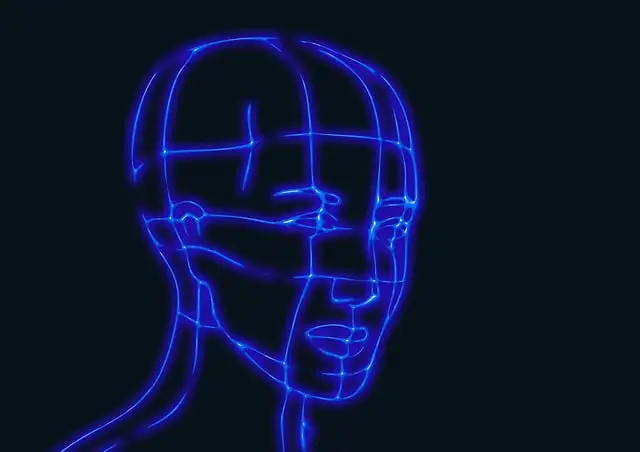The enactment of the Kratom ban in Louisiana has sparked a debate on its cognitive effects and legal status. This ban requires careful consideration of Kratom's impact on mental clarity and focus, as it derives from the Mitragyna speciosa plant and contains psychoactive properties that can vary in effect among users. The controversy surrounding Kratom's legality necessitates comprehensive research to clarify its cognitive influence and establish safe usage guidelines. Such studies are essential for informing both consumers and policymakers, particularly in light of the ban, and for shaping future regulations on Kratom, not only within Louisiana but also across other states. The legal landscape of Kratom is dynamic, with ongoing scientific scrutiny being crucial to ensure public health and safety while balancing individual experiences. For those affected by the ban, it's important to stay informed about the evolving laws and to use Kratom responsibly if it's still accessible through alternative means despite the restriction.
Exploring the effects of kratom on cognitive enhancement, this article sheds light on its potential for improved mental focus and clarity, set against the backdrop of the kratom ban in Louisiana. Delve into the scientific underpinnings that elucidate how kratom engages with neural pathways to sharpen cognition. Amidst evolving legal landscapes, users must navigate the complexities surrounding this controversial botanical substance. Understanding the intricacies of kratom’s impact on mental acuity is crucial as it remains a subject of debate within the scientific community and legal systems, particularly in Louisiana where its use is prohibited. Join us as we dissect the science behind kratom’s mechanisms for cognitive enhancement and address the current legal constraints users face.
- Understanding Kratom's Impact on Mental Focus and Clarity Amidst the Kratom Ban in Louisiana
- The Science Behind Kratom: Mechanisms for Enhanced Cognitive Function
- Navigating Legal Constraints: Kratom Ban in Louisiana – What Users Need to Know
Understanding Kratom's Impact on Mental Focus and Clarity Amidst the Kratom Ban in Louisiana

Mitigating the effects of the Kratom ban in Louisiana necessitates a nuanced understanding of Kratom’s influence on mental focus and clarity. Kratom, a botanical derivative from the leaves of Mitragyna speciosa, has been a subject of debate due to its psychoactive properties. In Louisiana, where the use of Kratom is legally restricted, the implications of this ban are particularly relevant for individuals who previously relied on it for cognitive enhancement. The alkaloids present in Kratom interact with the brain’s opioid receptors, which can potentially enhance focus and mental clarity for some users. However, the variability in individual responses means that while some may report heightened concentration and enhanced mental acuity, others might experience adverse effects contrary to these goals.
The legal status of Kratom is a moving target, with legislation varying across different states, including Louisiana’s ban. This legal landscape underscores the importance for consumers and researchers alike to navigate the complex relationship between Kratom consumption and its impact on mental focus and clarity. As such, ongoing research is crucial to elucidate the mechanisms by which Kratom affects cognitive functions and to determine safe and effective dosages. This scientific investigation can provide evidence-based guidance for individuals affected by the ban, offering alternative solutions or clarifying the role of Kratom in promoting mental sharpness. Understanding the nuances of Kratom’s effects is essential as policymakers consider the broader implications of its regulation.
The Science Behind Kratom: Mechanisms for Enhanced Cognitive Function

Kratom, a tropical evergreen tree native to Southeast Asia, has garnered attention for its potential cognitive-enhancing properties. The effects of kratom are attributed to its primary alkaloids, mitragynine and 7-hydroxymitragynine, which interact with various neurotransmitter systems within the brain. Scientific research suggests that these compounds may modulate the release and reuptake of neurotransmitters such as norepinephrine, serotonin, and dopamine, thereby influencing mood, energy levels, and cognitive function. The precise mechanisms by which kratom enhances mental focus and clarity are complex and multifaceted, involving both the opioid and non-opioid receptor systems. This intricate interplay can lead to improved concentration, heightened alertness, and a sharper mind, benefits that have led some to explore its use for cognitive enhancement.
In 2021, Louisiana took a significant regulatory step when it enacted a kratom ban. This legislative action reflects the ongoing debate surrounding the safety and legality of kratom. While the FDA continues to caution against the use of kratom due to potential risks, proponents argue for its therapeutic benefits, including its cognitive-enhancing effects. It is crucial for individuals considering kratom as a tool for cognitive improvement to be aware of both the scientific evidence and the legal status of the substance in their jurisdiction. As research continues to evolve, understanding the nuanced relationship between kratom consumption and cognitive function remains essential for informed decision-making.
Navigating Legal Constraints: Kratom Ban in Louisiana – What Users Need to Know

Navigating the complex legal landscape surrounding kratom has become a critical issue for users in Louisiana, especially with the enactment of certain regulations. As of the knowledge cutoff date, specific legislation has been passed that impacts the accessibility and legality of kratom within the state’s borders. Users in Louisiana must be aware of these legal constraints to ensure compliance and avoid unintended legal transgressions. The kratom ban in Louisiana, which restricts the sale, possession, and consumption of this botanical supplement, is a prime example of such constraints. It is imperative for users to stay informed about the current status of kratom laws, as they can fluctuate with legislative changes or new interpretations by state authorities. Users should verify the most current regulations from authoritative sources, such as local government websites or legal advisories, to navigate these restrictions responsibly and understand the implications for their use of kratom products aimed at enhancing mental focus and clarity.
For those seeking to purchase or consume kratom in Louisiana, understanding the nuances of the ban is essential. The ban typically applies to the cultivation, distribution, sale, and possession of kratom leaves or its extracts within the state. Users are advised to be cautious when purchasing kratom, as it may still be available through various channels, including online vendors who ship to Louisiana. However, users must exercise due diligence to ensure that they are not engaging in activities that contravene state laws. The consequences of violating these regulations can range from fines to misdemeanor or felony charges, depending on the quantity involved and past offenses. Thus, it is crucial for kratom users in Louisiana to be well-versed in the legalities to responsibly engage with this substance for its purported cognitive benefits.
In conclusion, the potential of kratom to enhance mental focus and clarity has been a subject of considerable interest, particularly amidst the ongoing dialogue surrounding its legal status. The intricate science behind kratom’s effects on cognitive function offers promising insights into its mechanisms of action. However, the kratom ban in Louisiana presents a significant challenge for users seeking to explore these benefits legally and responsibly. It is imperative for policymakers to consider the nuanced nature of kratom’s impact on mental clarity and focus when evaluating regulations. As research continues to evolve, it is crucial for individuals interested in kratom to stay informed about both its potential cognitive benefits and the evolving legal landscape. Users should exercise caution and adhere to local laws, particularly in states like Louisiana where restrictions are in place.






